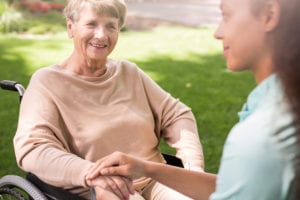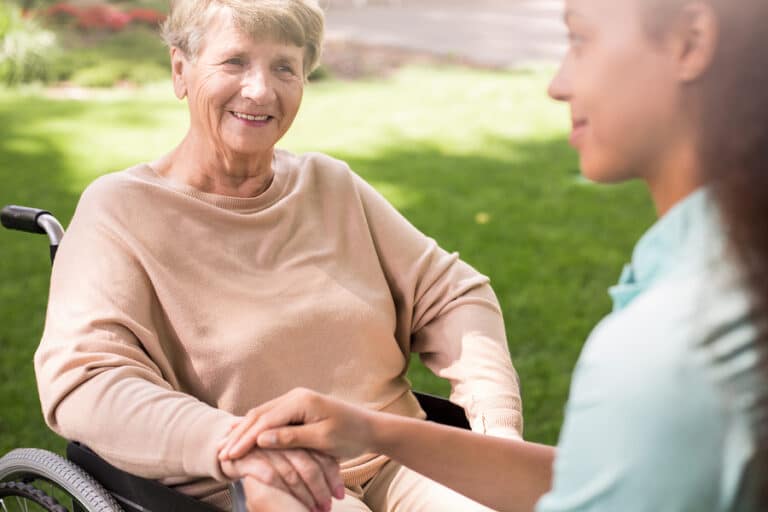Hives are an itchy skin condition that can affect people of any age, including older adults. About 20 percent of people get hives in their lifetimes. Hives aren’t contagious, but they are quite uncomfortable. Understanding more about hives can help you to deal with them should they occur in your aging relative.
About Hives

Hives are red bumps or welts on the skin that are itchy. They can be of various sizes and may come and go. Often, hives will appear suddenly and then go away in a couple of weeks. Sometimes hives can be chronic. To be deemed chronic, they must last for six weeks or more and recur often. Symptoms of hives include:
• Areas of red welts that can be on any part of the body. The welts may fade and then worsen again, change shape, and vary in size.
• Itching that can be severe, even keeping the older adult awake at night.
• Swelling in the lips, eyelids, and throat.
• Hives may get worse in the heat, when the senior exercises, or when they experience stress.
If hives occur as part of a dangerous allergic reaction called anaphylaxis, call 911 immediately. Symptoms of anaphylaxis include difficulty breathing, swollen lips, eyelids, or tongue, and dizziness.
Causes of Hives
Hives happen when the immune system sends chemicals called histamines into the blood. Why hives sometimes become chronic, no one knows.
Some common triggers of hives are:
• Insects.
• Parasites.
• Pain medicines.
• Infection.
• Heat or cold.
• Stress.
• Alcohol.
• Food.
• Scratching.
• Exposure to the sun.
• Tight clothing.
Treating Hives
Hives are usually treated using over-the-counter antihistamines. Look for antihistamines that do not cause drowsiness. However, if those do not work for the older adult, talk to the doctor about using other kinds of medications.
In addition to antihistamines, there are home remedies that can help, such as:
• Wear clothing that is light and loose.
• Avoid scratching.
• Use skin products designed for sensitive skin.
• Bathe, use lotion, or direct a fan at the affected area to soothe the skin.
• Identify triggers by keeping a log of when hives appear, what the senior was eating, and what they were doing at the time.
• Avoid the triggers you know about.
• Apply sunscreen to the senior’s skin before they go outside.
Elder care can help your aging relative to deal with hives when they occur. An elder care provider can apply lotions and sunscreen to the older adult’s skin. Elder care providers can also prepare a soothing bath and help them to get in and out safely. Elder care providers can also remind the older adult when it is time to take medications for treating hives.
If you or an aging loved one needs Elder Care Granite Bay, CA, remember Senior Home Care Services. Call us at (916) 514-7006 for more information.
Sources
https://www.webmd.com/skin-problems-and-treatments/chronic-hives-17/chronic-skin-rash
https://www.medicalnewstoday.com/articles/157260.php
https://www.mayoclinic.org/diseases-conditions/chronic-hives/symptoms-causes/syc-20352719
https://www.mayoclinic.org/diseases-conditions/chronic-hives/diagnosis-treatment/drc-20352723
- Kitchen Tools That Make Eating Easier for Seniors - April 25, 2025
- Helping Seniors Reduce Health Anxiety - April 18, 2025
- Why Should Seniors Consider Adding Soy to Their Diets? - April 7, 2025


